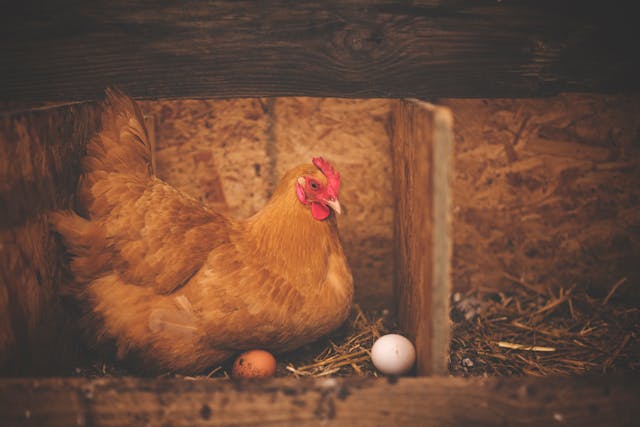Raising chickens can be a rewarding and fulfilling endeavor, whether you’re a seasoned farmer or a novice enthusiast. Not only do chickens provide fresh eggs, but they also offer companionship and can even help with pest control in your yard or garden. However, like any livestock, raising chickens requires careful attention and proper management to ensure their health and productivity. Whether you’re considering starting your own flock or looking to improve your existing setup, here are some essential tips for successfully raising chickens.
1. Choose the Right Breed
One of the first decisions you’ll need to make when raising chickens is selecting the right breed for your needs. Consider factors such as egg production, temperament, climate suitability, and space requirements. Popular breeds for egg production include Rhode Island Reds, Leghorns, and Sussex, while Orpingtons and Wyandottes are known for their dual-purpose nature, providing both eggs and meat. Research different breeds to find one that suits your preferences and goals.
2. Provide Adequate Shelter
Proper housing is essential for keeping your chickens safe and healthy. Invest in a sturdy coop that offers protection from predators, extreme weather conditions, and drafts. Ensure that the coop is spacious enough to accommodate your flock comfortably, allowing at least 2-3 square feet of space per bird inside the coop and 8-10 square feet per bird in the outdoor run. Consider searching for large chicken coops for sale to find options that meet your space requirements. Explore our selection of large chicken coops for sale, designed to provide ample space and comfort for your growing flock, ensuring they stay safe and productive in any weather condition.
3. Maintain Cleanliness
Regular cleaning and maintenance of the coop are crucial for preventing the buildup of bacteria and parasites that can lead to diseases. Remove soiled bedding, droppings, and any leftover food daily to keep the coop clean and odor-free. Replace bedding regularly and sanitize the coop periodically to ensure a healthy environment for your chickens.
4. Provide Proper Nutrition
A well-balanced diet is essential for keeping chickens healthy and productive. Offer a commercial poultry feed formulated for their age and stage of life, whether they are chicks, layers, or meat birds. Additionally, supplement their diet with fresh fruits and vegetables, grit for digestion, and calcium sources like crushed eggshells or oyster shells for strong eggshells. Ensure access to clean, fresh water at all times.
5. Practice Good Hygiene
Maintaining good hygiene practices is crucial for preventing the spread of diseases among your flock. Wash your hands thoroughly before and after handling chickens, eggs, or any equipment used in their care. Keep feed and water containers clean and free of contamination. Quarantine new birds before introducing them to your existing flock to prevent the spread of illnesses.
6. Monitor Health and Behavior
Regularly monitor your chickens’ health and behavior to catch any signs of illness or distress early on. Look for symptoms such as lethargy, decreased appetite, respiratory issues, abnormal droppings, or changes in egg production. Establish a relationship with a poultry veterinarian who can provide guidance and assistance in diagnosing and treating any health issues that may arise.
7. Allow for Exercise and Free Range
Chickens are naturally active animals that enjoy foraging and exploring their surroundings. Whenever possible, allow your chickens access to a secure outdoor area where they can roam, scratch for insects, and engage in natural behaviors. If free-ranging isn’t feasible, provide ample space within the coop and run for exercise and enrichment activities, such as perches, dust baths, and toys.
8. Plan for Predators
Predators pose a significant threat to backyard chickens, including raccoons, foxes, dogs, and birds of prey. Take precautions to secure the coop and outdoor run with sturdy fencing, hardware cloth, and predator-proof latches. Install motion-activated lights or alarms to deter nocturnal predators. Consider using guardian animals, such as dogs or llamas, to help protect your flock from potential threats.
9. Be Prepared for Egg Production Fluctuations
Egg production can fluctuate throughout the year due to factors such as daylight hours, temperature, molting, and age of the hens. While some breeds are prolific layers year-round, others may decrease or cease egg production during the winter months. Be prepared for these fluctuations and adjust your expectations accordingly. Collect eggs regularly to prevent them from spoiling or being eaten by predators.
10. Enjoy the Rewards
Despite the challenges and responsibilities involved, raising chickens can be incredibly rewarding. From collecting fresh eggs daily to observing their quirky behaviors and personalities, chickens can bring joy and fulfillment to your life. Embrace the experience of raising these fascinating creatures and appreciate the valuable lessons they teach about self-sufficiency, responsibility, and connection to the natural world.
In conclusion, raising chickens requires careful planning, dedication, and ongoing attention to their needs. By choosing the right breed, providing adequate shelter, nutrition, and healthcare, practicing good hygiene, and taking steps to protect them from predators, you can create a thriving and sustainable chicken flock. Whether you’re a backyard hobbyist or aspiring homesteader, following these essential tips will help you successfully raise chickens and enjoy the many benefits they provide.
Remember, when considering housing options, look for large chicken coops for sale to ensure your flock has ample space to thrive and flourish. With proper care and management, your chickens will reward you with fresh eggs, companionship, and endless entertainment for years to come.
Published By: improveresidence.com




